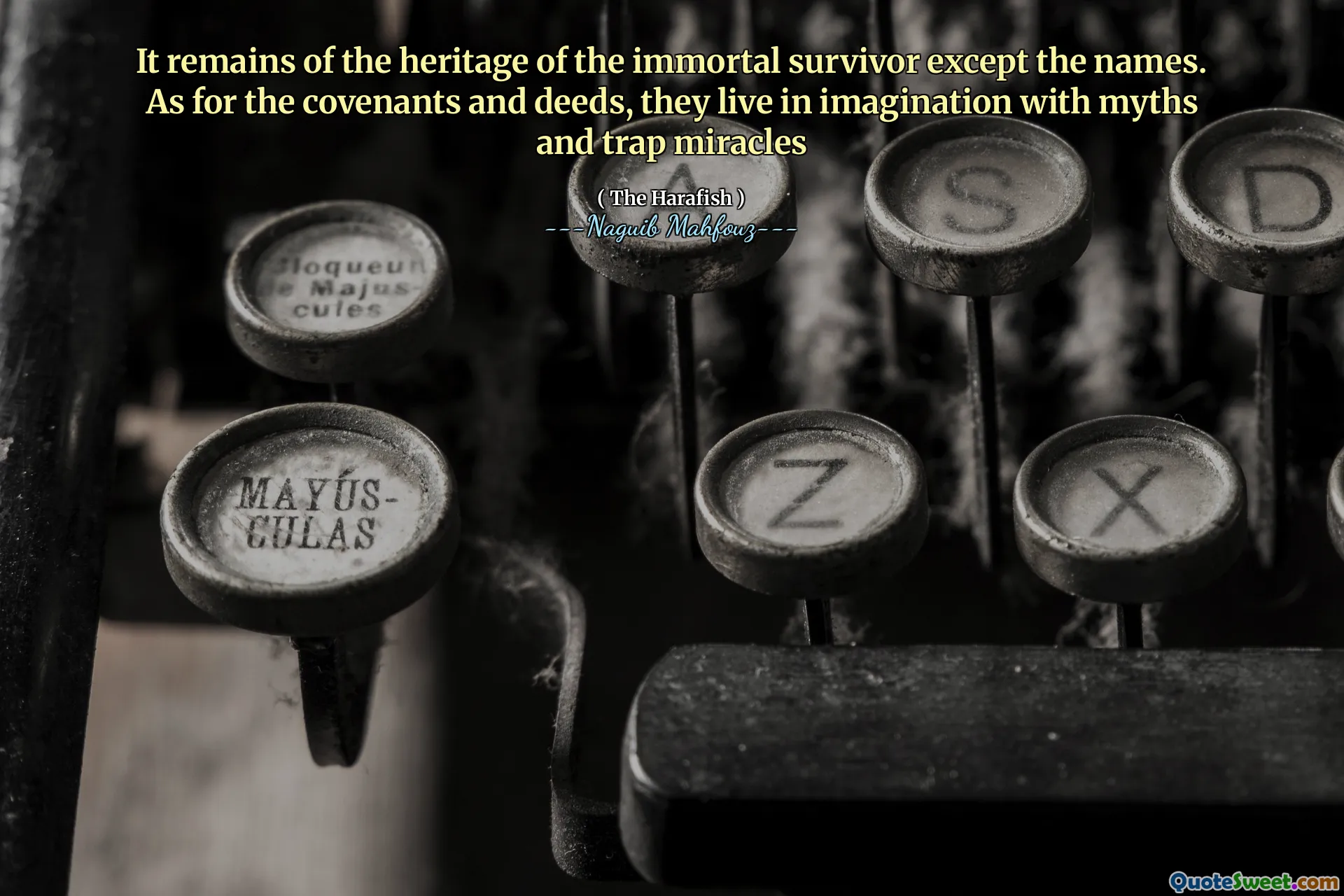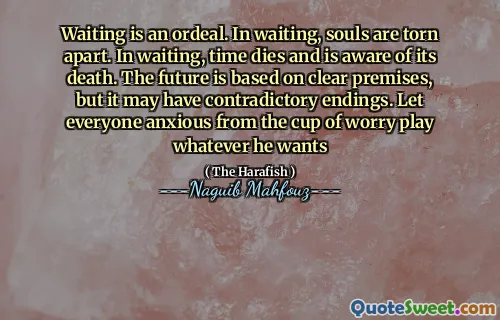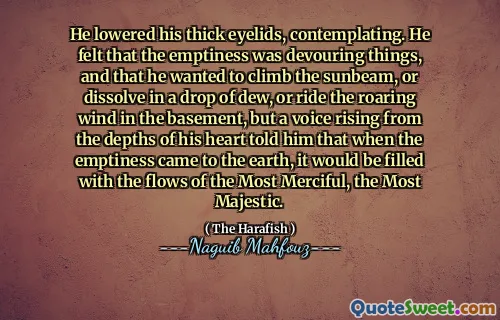
It remains of the heritage of the immortal survivor except the names. As for the covenants and deeds, they live in imagination with myths and trap miracles
The quote reflects on the enduring legacy of those who survive through trials, emphasizing that while the names may change, their stories and experiences carry on. It suggests that the essence of these survivors lives on in our collective imagination, enriched by the myths that develop around them. This signifies how history can transform into a narrative that captivates and inspires future generations.
Additionally, the reference to covenants and deeds living on in our imagination highlights the power of storytelling and myth-making in human culture. These elements shape our understanding of past events and connect us to the extraordinary feats and miracles experienced by those who came before us. Naguib Mahfouz illustrates how heritage, though altered by time, retains its profound impact on our lives and perceptions.











